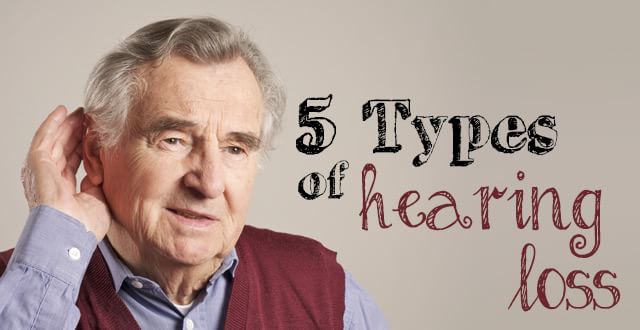Hearing loss certainly isn’t uncommon, but understanding the different types of hearing loss is important. The way hearing loss presents itself can be an indicator of the cause as well as the likelihood of restoring hearing.
Four ways hearing loss can occur:
- Trouble hearing conversations in a noisy environment
- Feeling of fullness in your ears
- Sudden onset hearing loss
- Fluctuating hearing loss with dizziness or balance issues
Age-Related Hearing Loss
The most common type of hearing loss is related to aging. Everyone has natural hearing loss over their lifetime, but it can be prevented.
The cochlea is the structure in your ear that converts sound waves into information your brain can understand. The cochlea is a collection of more than 15,000 hair cells. These cells can become damaged over time and do not regenerate.
As you age, gradual hearing loss occurs as these cells stop functioning. The process is slow, but can be exacerbated by loud noises. Obviously, people exposed to loud noises regularly are more prone to hearing loss, but these cells can be damaged even by single instances of exposure to loud sounds.
Loudness is measured in decibels. A typical conversation occurs between 40 and 60 dB. Exposure to sounds above 85 dB can place you at risk. Because this hearing loss can be gradual, it’s easier to ignore and simply increase the volume on your music player, telephone or television. Unfortunately this can accelerate the loss. Typical earbuds are capable of producing sounds up to 105 dB.
The best treatment for age-related hearing loss are hearing aids. It’s important to be evaluated after the age of 50. Kidney and heart disease can also place you at greater risk.
Today’s technology means many hearing problems can be treated with hearing aids that are virtually invisible and in more serious cases surgical implants can be used to restore hearing that has been lost.
Infection Related Hearing Loss
The common symptom is a “feeling of fullness” in your ears accompanied by mild hearing loss. The most common cause of that feeling is an infection in or around the ear canal.
This symptom may reverse itself once the infection clears. Antihistamines and decongestants can reduce the symptoms but antibiotics may be necessary to eliminate the infection itself.
An earwax blockage can also cause this feeling. Attempting to clear earwax can result in damage to the tissues of the ear as well as damage to the cochlea. Consulted hearing specialist to determine if earwax is indeed the issue, and let them professionally cleanse your ear.
Sudden Hearing Loss
Normal hearing loss is gradual. A sudden loss of hearing is an indicator of a problem. This can be the result of damage to the cochlea or the audio nerves. It’s important to see a specialist quickly at the onset of a sudden hearing loss.
This hearing loss can be the result of an infection and can also be triggered by taking high doses of certain medications. Aspirin, antibiotics, diuretics and chemotherapy have all been known to trigger sudden hearing loss.
Sometimes sudden hearing loss can be reversed, but treatment must begin quickly, usually within 72 hours. Your doctor may prescribe steroids to prevent damage to the nerves.
Hearing fluctuation with dizziness
An uncommon disease, Ménière’s disease, alters the flow of the fluid behind your eardrum known as endolymph. This fluid is responsible for your sense of balance. Changes in its viscosity can cause dizziness or loss of balance.
The cause of the disease is unknown and it can’t be cured, but it can be treated. Reducing sodium in your diet can help. Some doctors may prescribe a diuretic. In rare cases, doctors may prescribe steroids or recommend inserting tubes to drain excess fluid.
Again, this type of hearing loss is treated most effectively when treated early, so consult your primary care physician if your hearing fluctuates and is accompanied by dizziness or balance issues.
Gradual hearing loss with age is normal, but not all hearing loss should be attributed to the aging process. It’s important to treat hearing loss of any kind to maximize the likelihood of hearing restoration.

